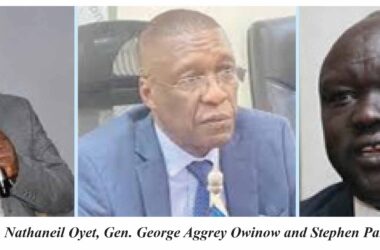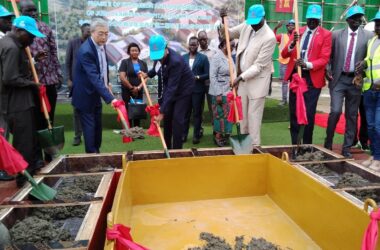By Mary Poni
The National Ministry of Gender, Child and Social Welfare has called on the chiefs and the traditional leaders from the ten states and the three administrative areas to employ dialogue on the implementation of the strategic action plan on ending child marriage in South Sudan.
The undersecretary in the national ministry of Gender, Child and Social Welfare, Easter Ikere made the appeal in Juba yesterday (Wednesday).
She was addressing a validation workshop on the initiative of ending child marriage championed by the African Union Campaign (AUC) when the head of states made a declaration in 2014 which was attended by President Kiir and other presidents.
The declaration was to end child marriage by 2030 and that is a task to the government to begin working on ending child marriage in the country.
“This is the journey and commitment to show that the government is on the move to ending the child marriage comes 2030,” she said.
The undersecretary said the chiefs and the traditional leaders have a very important role to play in the fight to end early child marriage.
She cited that they (chiefs/traditional leaders) are the custodians of the customs, practitioners of the customs and they are the ones on daily bases addressing issues to do with child marriage.
“As a ministry, we cannot move towards ending the child marriage without engaging our chiefs and the traditional leaders because they are the focal persons that can end the child marriage rather than the ministry alone.”
“We have identified that your role is very important and we will only be sure if the chiefs and the traditional leaders perform their roles responsibly,” she reiterated.
Ikere said it has become one of the key mandates of the ministry of gender to ensure children are free from violence, discrimination and neglect in the communities.
This year’s conference brought together chiefs, and traditional leaders from the ten states and the three administrative areas.
The initiative started in 2019 where paramount chiefs from the former thirty-two states were brought together to bring out the best ways of protecting young girls against early child marriage and also other harmful practices.
While in 2020, a dialogue was conducted with chiefs to follow up on the implementation of the Pan African declaration and this dialogue resulted in to the development of the action plans which the traditional leaders committed to implement by the year 2021, according to Minister of gender and child social welfare, Ayaa Benjamin Warille.
She stated that it was also agreed in 2022 dialogue that chiefs’ conference will be conducted annually to track the progress of the implementation of the national action plan to ending early child marriage.
“Our country is among the countries with poor child marriage indicators where we have very few girls continuing in the education system,” she said.
Ayaa said only 6.2 which is 30% of girls completed primary schools with one out of five dropping out due to pregnancy. She stressed that child marriage is a major challenge in the country and it is among the harmful practices to human rights violation that impact the lives of millions of adolescent girls and women.
According to the latest data available from the 2010 house hold survey, 7% of women between the age of fifteen and forty-nine years were married off before the age of fifteen.
45% of women between the age of twenty and forty-nine were married before the age of eighteen while teenage pregnancy and adolescent birth rate is high standing at three hundred in every one thousand live births.
Ayaa Benjamin said that adolescent girls are vulnerable to obstructed labor because they are not fully developed.
In the year 2014 African Union Commission launched a campaign to end child marriage in Africa and more than thirty member states including South Sudan responded to accelerate the implementation of ending the child marriage program and intervention.
Minister Ayaa encouraged all the participants especially the chiefs and the traditional leaders to share their experiences on the work that they have been doing and what they can do differently to meet their commitments of ending child marriage by the year 2030.



